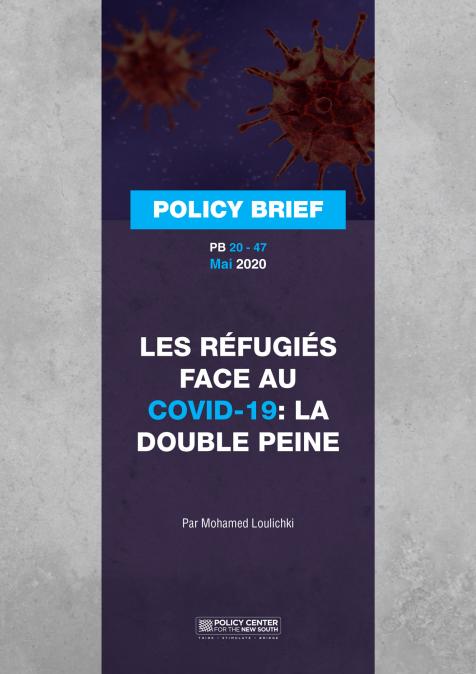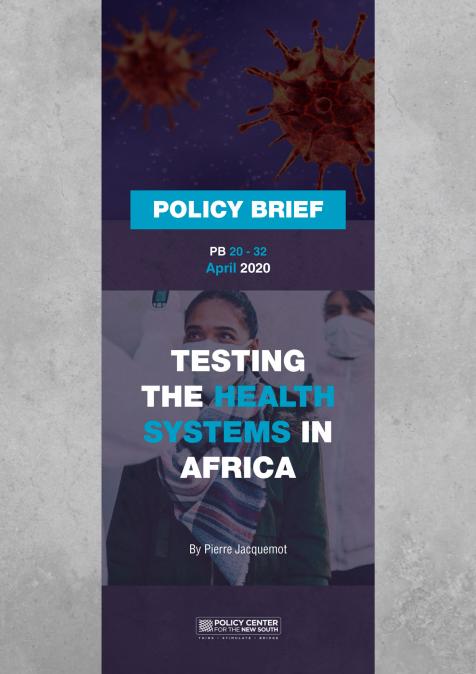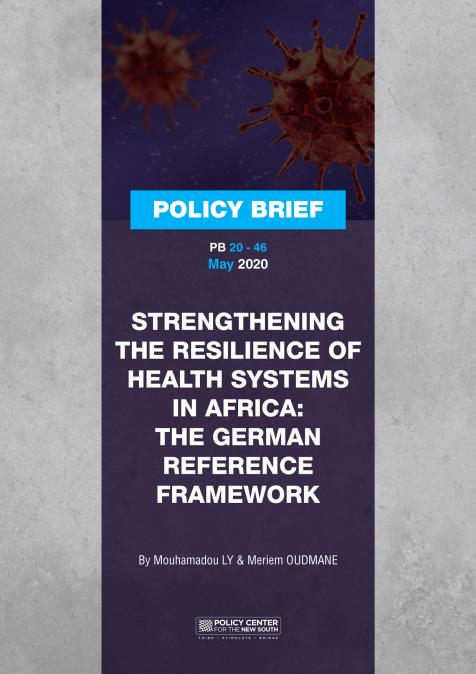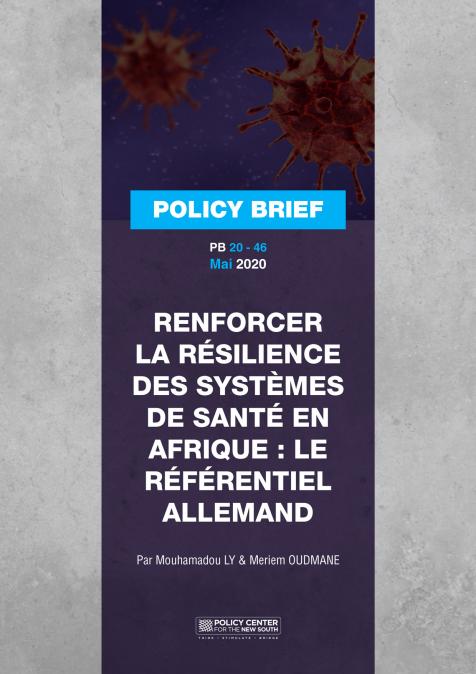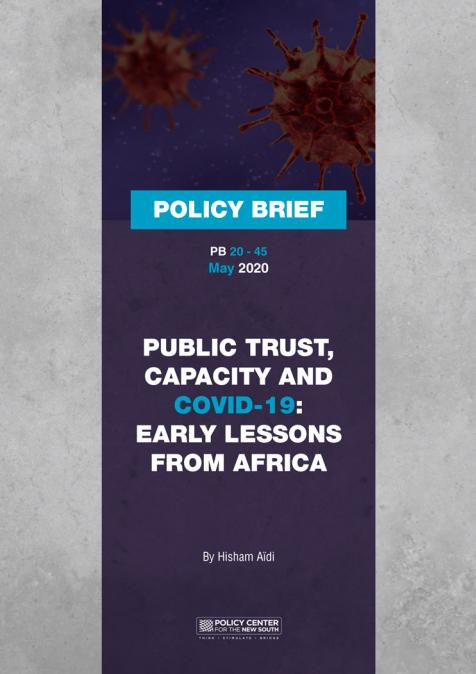Publications /
Opinion
Affluent citizens of Manhattan have been escaping to their beach homes at the famous Hamptons or the picturesque coast of nearby Massachusetts. Parisians are deserting their spacious apartments overlooking parks and boulevards, descending on quaint villages in Normandy or beyond. London has noted stagnation in the number of new renters and buyers, and Londoners with property in peaceful countryside are moving out of the city, ready to work from home. Futurologists, sociologists and city planners are noting a new trend, brought about by COVID-19: centers of major cities worldwide, which just a year ago were bustling with consumers and unending traffic, are thinning out, with companies deserting office buildings, possibly never to return.
In one part of the world, however—Africa—cities seem to have been spared. The flight to safety, to escape the death, depression, and disaster caused by the virus, has not happened. Paola Maniga and Yassine Moustanjidi, in a Policy Brief for the Policy Center for the New South (African Cities in Times of COVID-19: Resilience against all Odds) take an optimistic, preliminary, lesson from this. They advance the theory that the African fight against the pandemic has resulted in innovative approaches that perhaps could pave the road to a new urban development model in Africa and beyond.
COVID-19 has exposed new vulnerabilities in social infrastructure and governance systems, noted Paola Maniga and Yassine Moustanjidi. During the first months of the pandemic, the authors wrote, “there was a genuine concern” about the capacity of the Global South to contain the spread of the virus: “African cities were particularly vulnerable”, with some experts, including the head of the World Health Organization, “predicting a catastrophe for the continent”. But in fact African cities have been able to defy predictions of doom and tragedy, and have “avoided the exponential death and contamination rates observed in other parts of the world”, including major cities like London or New York. It seems almost a miracle how African cities have been able to master the menace, concluded Maniga and Moustanjidi. They argued that, while Africa’s low mortality rate from COVID-19 can be linked to demography, with 60% of the population aged under 25, the resilience in Africa against the virus is “also due to quick adaption and to the coping mechanisms in some African cities covering many social, spatial, and governance aspects”.
The Road to a New Urban Development Model
African governments have put in place, like nations worldwide, a series of measures to contain the spread of COVID-19, including lockdowns, curfews and banning of public gatherings, decisions the authors consider important, but argue that the “top down approach”, which overlooks the input of local communities and disempowers them from a domesticizing , indigenous, and home grown discourse. Engagement with local authorities is key if their voices are to be included in local, regional, and national responses to the pandemic, thus ensuring their own recovery, even more in some areas where tribal society remains prominent. The researchers wrote that “From preparedness and compliance with lockdowns, to building trust and confidence in the implementation of other upcoming emergency measures, a meaningful collaboration between community groups and informal actors on the one hand, and institutional governance on the other, has made the fight against COVID-19 more successful”. Maniga and Moustanjidi present examples of fruitful partnerships, as in Ethiopia, where the Ethiopian Community Radio Network partnered with UNESCO, the Ethiopian Ministry of Health, the United Nations Communication Group and Ethiotelecom to enable community radio journalists and volunteers to get real-time lifesaving information from the government and other COVID-19 response teams through a wider network: “By involving local community volunteers who better know their peers, and empowering them to be creative in producing programs to educate in several local languages, community radio played a major role in knowledge sharing and connectivity in remote areas, and in timely manner”.
The pandemic, noted the writers, has also revealed the increasing importance of digital technology as a key ingredient to effectively respond to the crisis. Although several African countries still struggle with the development of their digital economies, with only 28% of the African population able to access the internet, others have quickly embraced digital transformation programs and have applied technology advancement to the health sector and as a means to continue economic and social activities and shape sustainable recoveries from the pandemic. Certain African governments have encouraged mobile money use instead of cash for local transactions and payment for goods and services, to prevent the spread of infections. The Policy Brief includes examples of how the pandemic led to innovative partnerships between tech companies and entrepreneurs that aim to bridge the digital gap in Africa: “From Kenya to Cameroon, Ghana, Rwanda, Sudan, South Africa, Uganda, and Zambia, several mobile network operators have increased daily limits, doubled internet speeds, waived fees on nominal transfers via mobile money, or offered governments the ability to send free text messages to people living in areas hit by COVID-19”.
For the authors “one country in particular” has accelerated its digital transformation during the pandemic—Morocco. The kingdom has “harnessed technology adoption across a wide range of economic sectors. From the proliferation of online banking services, to the distribution of financial aid, distance learning in schools and universities, teleworking in companies and telemedicine”. Morocco has been able to react swiftly and decisively to the threat of the coronavirus pandemic through the power of data and technology. Telemedicine has been encouraged, with the Ministry of Health offering a free telemedicine platform to allow remote medical care, thus relieving congestion in several hospitals. Maniga and Moustanjidi did not shy away from a critical, even sober assessment: “The pandemic has highlighted how urban planning, health and equity are intertwined. It has made clear to city managers that the social marginalization and the unequal distribution of public services will be counterproductive in managing current and future urban crises. The pandemic has been a wakeup call for many cities across the continent to rethink their planning models, and to assess the social, ecological, and economic vulnerabilities of their urban systems”.

